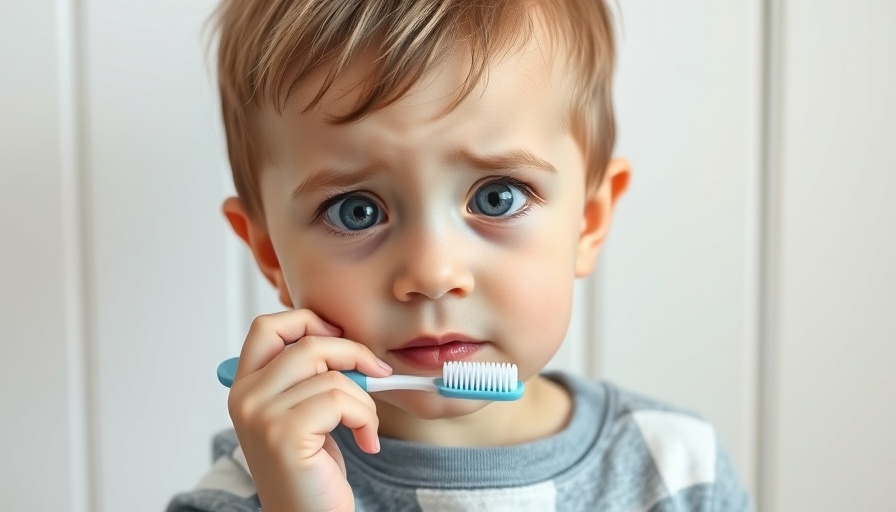
Understanding the Importance of Baby Teeth Care
When it comes to children's oral health, baby teeth often get overlooked. However, these primary teeth play a crucial role in not only helping little ones eat and speak but also in guiding the proper development of adult teeth. Recent statistics reveal that 42% of children aged 2-11 in the United States experience tooth decay in their baby teeth. This growing issue emphasizes the need for proactive dental care and education.
Why Cavities Form and Their Consequences
Cavities occur when bacteria produce acids that wear away the enamel of teeth, leading to painful decay. Dr. Supriya Shetty points out that factors like diet and oral hygiene habits significantly contribute to the prevalence of cavities in children. For instance, frequent snacking on sugary treats and insufficient dental care can accelerate decay. What's alarming is that untreated cavities can lead to infections, pain, and issues that affect the underlying adult teeth's development.
Diet: The Foundation of Healthy Teeth
The connection between nutrition and oral health cannot be overstated. Promoting a diet rich in unprocessed whole foods is vital. According to holistic dental experts, essential vitamins and minerals – particularly fat-soluble vitamins A, D, E, and K – are critical for tooth health. Foods high in these nutrients include grass-fed meats, eggs, cod liver oil, and dark leafy greens. Limiting sugary snacks and drinks can also protect teeth by reducing acid exposure.
Effective Non-Invasive Alternatives
Fortunately, if a cavity does develop, there are innovative approaches to treatment that don’t involve traditional drilling and filling methods, which can be intimidating for children.
- Silver Diamine Fluoride (SDF): This painless treatment halts decay progression and promotes remineralization. Recommended for children who experience dental anxiety, SDF doesn't require invasive procedures.
- Fluoride Treatments and Sealants: Strengthening enamel and providing barriers against food particles, these preventive measures are effective in reducing cavity risks.
- Composite Resin Fillings: When fillings are necessary, composite resins offer a safe and natural aesthetic alternative without harmful materials like mercury.
Ensuring Consistent Dental Hygiene Practices
Building a strong dental hygiene routine from an early age is essential. Parents should encourage their children to brush at least twice daily with fluoride toothpaste and begin flossing as soon as teeth are touching. Modeling good habits, such as regular dental visits every 6 months, will reinforce the importance of dental care in children.
The Role of Regular Dental Checkups
Early intervention is key. Bringing your child to a pediatric dentist should happen by their first birthday to identify problems before they escalate. Many modern dentists, especially those practicing holistic or biological dentistry, focus on preventive care, emphasizing healthy lifestyle choices while addressing dental issues safely.
Natural Remedies and Beyond
In addition to conventional treatments, consider integrating natural oral health boosters, such as xylitol-based products, which can help reduce cavity-causing bacteria. Encouraging children to chew xylitol gum after meals supports saliva production and enhances teeth protection between brushing sessions.
Summary: Empowering Parents to Prevent Cavities
By understanding the significant impact of nutrition, encouraging healthy habits, and utilizing modern dental interventions, parents can effectively manage and prevent cavities in their child's baby teeth. The combination of a wholesome diet, regular dental checkups, and excellent dental hygiene practices sets a strong foundation for a lifetime of healthy smiles.
Ready to support your child's dental health? Visit a local holistic dentist to explore safe and effective treatments that align with healthy lifestyle choices. Ensuring your child's dental health is as easy as making that appointment!
 Add Row
Add Row  Add
Add 



Write A Comment